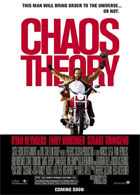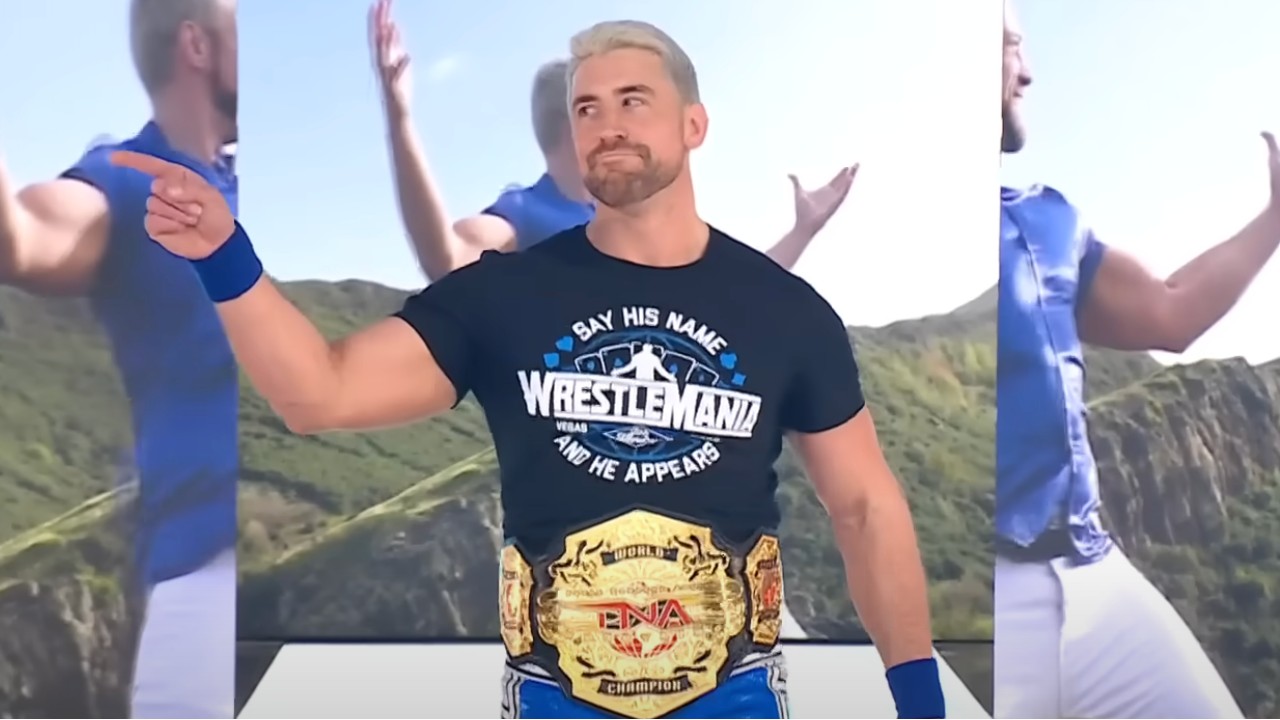Chaos Theory is the sort insipid family drama that leaves audience members feeling softhearted and dumb, which means they are twice as likely to order dessert and to cross busy streets without looking both ways first. This type of lackadaisical frippery is endemic to Chaos Theory, which concerns itself with the consequences of a very bad day in the life of Frank (Ryan Reynolds), an efficiency expert and family man who organizes his world by making lists on note cards.
After his wife Susan (Samantha Morton) throws Frank off his schedule by setting the kitchen clock forward, he misses the ferry and is an hour late to his lecture on time management. Embarrassed, he drowns his sorrows at the bar in the company of an overly amorous blonde. Thanks to a perfect storm of unlucky events, including a stupid Good Samaritan act on Frank’s part, Susan becomes convinced that her husband has cheated on her and kicks him out of the house. Poor Frank.
Thanks to yet another storm of unlucky events, Frank discovers that he is not biological father of Jesse (Matreya Fedor), his young daughter. Which means that Susan cheated on him. It couldn’t have possibly been with Buddy (Stuart Townsend), Frank’s ne’er do well best friend and consummate flirt, the same friend who’s nursed a crush on Susan for years, could it?
Does this all make sense to you? Good, because it’s just the set up. The real heart of the movie involves Frank deciding to throw caution to the wind, along with his carefully plotted out note cards. Instead of making lists of his daily duties, Frank writes down things he would like to do and chooses randomly among them. A sampling: streaking at a hockey game; buying a motorcycle; smoking cigarettes. Where before Frank annotated his life at a cozy kitchen table while his wife cooked pancakes, he now sits in a dingy motel room, shuffling his note cards, and puffing on a Camel like a pro, which in the language of Chaos Theory means he is "finding himself".
As an aside, why is a character’s moral decay always signaled by a newly minted smoking habit? Don’t you think it would be even more morally abhorrent if characters started smoking crack instead? And why is it that when a character yearns to break free, the first thing he does is hop on a motorcycle? These are all thoroughly clichéd acts that rely on cultural recognition of pre-existing associations for their effectiveness. Example: Cigarette smoking = a bad person. Motorcycles = freedom. Chaos Theory traffics only in cliché and doesn’t bother with original observation at all.
Subtle acting probably wouldn’t have rescued this sop fest from the dumpster, so maybe it’s okay that all the performances are wooden; great ones would have been too good for this dreck. The biggest disappointment is Samantha Morton as Frank’s wife, Susan. Though Morton successfully fleshed out a typical wifey character in Lars and the Real Girl, Susan is nothing more than a spindly goody-goody prone to hysteria. Reynolds may one day give a serviceable dramatic performance, but this isn’t it, and I’m not convinced Townsend can't act at all. Buddy preens and parades around, but remains inherently slimey and unwanted, the sort of guy you’d take home from the bar but try to get rid of as soon a possible, with a lot of trouble. Why would the homey Susan and Frank be friends with this guy? For that matter, why would anyone?
The story is predictable and ruthlessly maudlin for all of its 85 minute running time. Some scenes Chaos Theory are funny and touching, mostly the ones involving Jesse, but relying on a child to add sparkle to your film is cheating. With it’s boring characters, overly-complicated yet simple-minded plot, and totally ridiculous ending, Chaos Theory attempts to project a sense of sweetness and hope but only succeeded in giving this reviewer a sugar headache.











